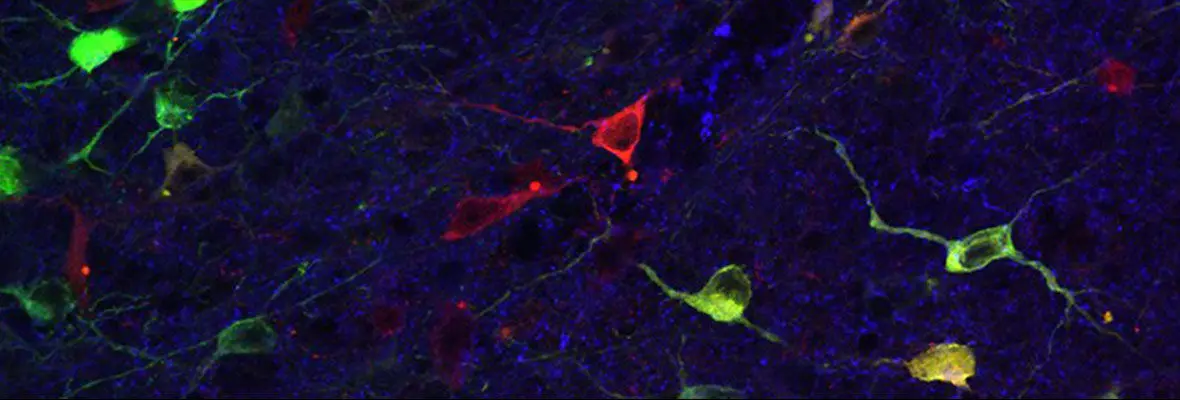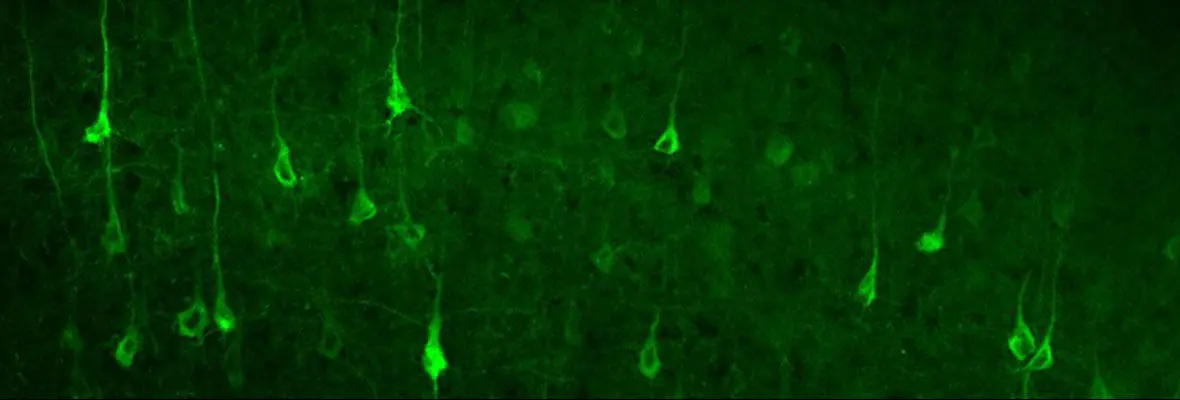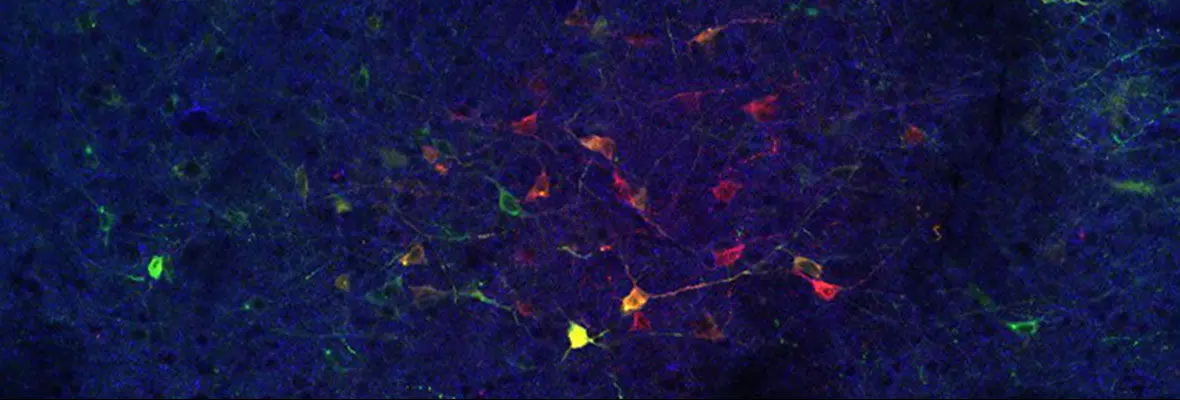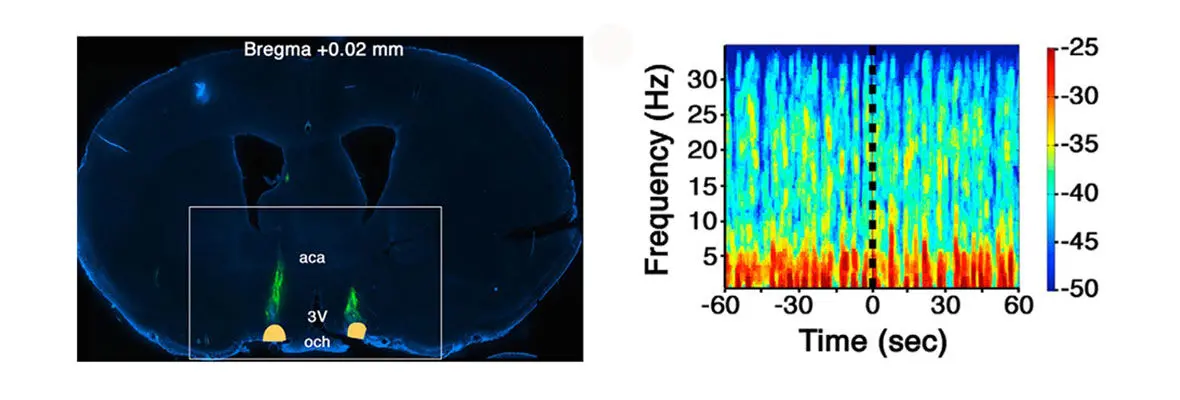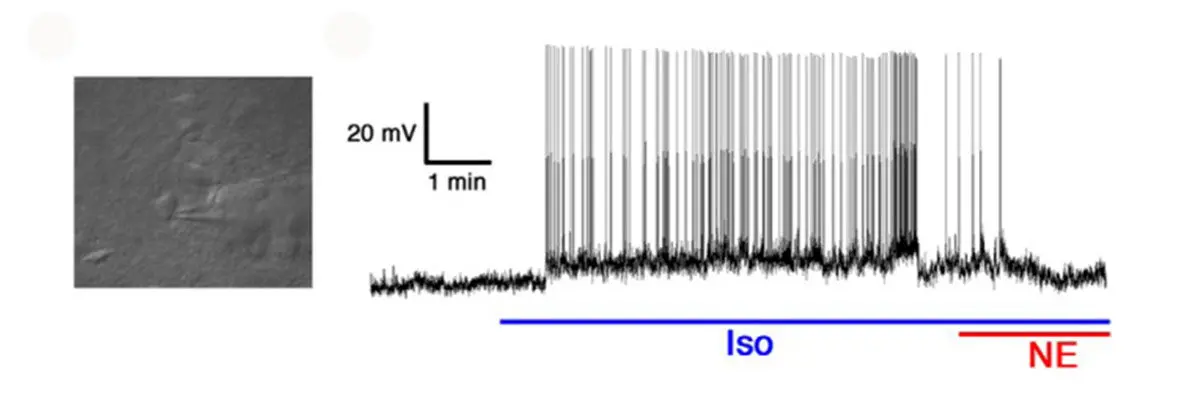Welcome to the Kelz Lab
The Neurobiology of Unconsciousness.
The advent of general anesthesia revolutionized modern medicine. Millions of individuals are exposed to general anesthetics each year, but the diverse molecular and neuronal mechanisms through which anesthetic drugs acts to produce their hypnotic effects remain incompletely understood. We are driven to understand this fundamental question at the heart of neuroscience: how do general anesthetic drugs, which vary drastically on a molecular level, all lead to the same endpoint of unconsciousness/hypnosis.
In the process of working on neuronal mechanisms of anesthetic induced unconsciousness, we have uncovered the intriguing finding that the forward state transition into a state of general anesthesia is not a mirror image of the reverse state transition back to wakefulness. Studies in the Kelz lab in fruit flies, mice, and humans are all designed to explore questions of how the brain undergoes state transition that lead to dramatic changes in behavioral arousal. Another central question of the Kelz lab addresses the degree to which states of general anesthesia and endogenous sleep converge and how these states diverge
Max B. Kelz, MD, PhD, President and Chief Scientific Officer of FAER
Congratulations to Max B. Kelz, MD, PhD, the Lee A. Fleisher, MD Professor and Vice Chair of Research for the Department of Anesthesiology and Critical Care, on being selected for the President and Chief Scientific Officer of FAER (Foundation for Anesthesia Education and Research) beginning in 2024. An accomplished neuroanesthesiologist, funded continuously by the National Institutes of Health (NIH) for roughly two decades, Dr. Kelz is a prolific researcher who has authored 95 peer-reviewed research publications. FAER is excited for Dr. Kelz to take on his role as President and CSO and looks forward to the positive impact his contributions will have on the Foundation’s work.
Congratulations Max!
Latest News
-
CONGRATULATIONS to Andi Wasilczuk, PhD, on his outstanding doctoral dissertation defense!
Wednesday, September 15, 2021
Andi's successful defense was entitled, Reverse Engineering the Anesthetic State: Insights from Behavior and CNS Circuit Cracking. As a Penn Biomedical Engineering graduate student, Andi completed his research in the Kelz lab and worked closely with the whole team from the Center for the Neuroscience of Unconsciousness and Reanimation Research Alliance (NEURRAL).


